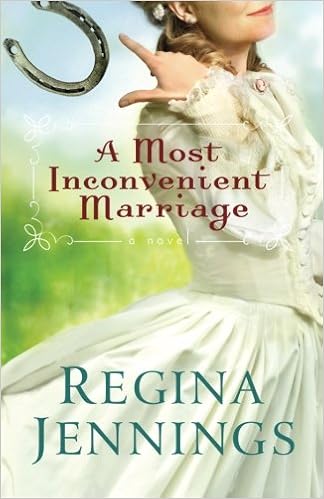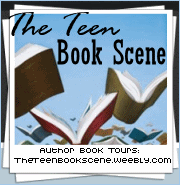Hello, everyone! Today I am excited to introduce the author of A Golden Web, a historical fiction novel releasing April 16, 2010, Barbara Quick! She's an amazing author and was kind enough to do an interview with me. Its very inspiring to read, and I think you'll all enjoy it!

Alessandra is desperate to escape.
Desperate to escape her stepmother, who's locked her away for a year; to escape the cloister that awaits her and the marriage plans that have been made for her; to escape the expectations that limit her and every other girl in fourteenth-century Italy. There's no tolerance in her quiet village for Alessandra and her keen intelligence and unconventional ideas.
In defiant pursuit of her dreams, Alessandra undertakes an audacious quest, her bravery equaled only by the dangers she faces. Disguised and alone in a city of spies and scholars, Alessandra will find a love she could not foresee -- and an enduring fame.
In this exquisite imagining of the centuries-old story of Alessandra Giliani, the world's first female anatomist, acclaimed novelist Barbara Quick gives readers the drama, romance, and rich historical detail for which she is known as she shines a light on an unforgotten -- and unforgettable -- heroine.
1. Was it hard for you to get an image in your head of the setting/time period in A Golden Web?
It was a surprise for me, once I got to Bologna to begin my research there, to realize how long ago the 14th century was! I guess I was a little naïve and maybe a bit spoiled, too, in that 18th century Venice—the setting for VIVALDI’S VIRGINS—is still more or less intact. The settings for A GOLDEN WEB have mostly been covered up by seven centuries of history and architecture. I literally had to go underground, in Bologna, to explore many of the ruins of the 14th century—to creep around in crypts!
I had a bit of a sense of despair when I realized that time had obliterated so much of what I had hoped to touch, smell, and see. And then I woke up in my little hotel room one day and heard birds singing out in the garden. They were probably the same kind of birds, I reasoned, that Alessandra would have heard. I took a long hike along a pilgrimage road, and realized that the trees, the plants, the way the clouds massed in the sky above the land—all of that was still there to inform me about Alessandra’s world.
The biggest help, though, were the paintings and illuminated manuscripts I studied in Bologna’s beautiful museums and libraries: paintings that were made in Alessandra’s time. Even though the subject matter was almost always Classical or Biblical, the little details in the paintings revealed a huge amount about the way daily life was lived in the early 14th century in that part of Italy. I mined these pictures for details: how people dressed, what furniture they sat and slept on. What and how they ate, and how they harvested and prepared the food for their table. All the complex architecture of their everyday lives.
Of course, I profited, too, from the considerable scholarly research that’s been done on the subject. I’m putting together a list for my web site of the books I used for my research. I’m tremendously grateful for the patient work of all those scholars who’ve spent whole academic lifetimes studying the Middle Ages!
2. What was your favorite thing about writing this book?
Well, of course, I loved going to Bologna and spending time there, doing the research. Soon after I got home, though, I had a really serious accident on a backpacking trip. I ended up with a horribly bruised face, thirteen stitches at my hairline, and a broken heart (on top of it all). The characters of A GOLDEN WEB gave me companionship and escape during what turned out to be a year of healing. My bruises took about three weeks to heal; the broken heart took the entire year.
Fortunately, I was more than willing to immerse myself in what turned out to be the most intense experience of research and writing of my entire professional lifetime. It took me only one year, from start to finish, to research and write A GOLDEN WEB—and there was, as you know from the book, Arya, a huge amount of material to master: daily life in early 14th century Emilia-Romagna, educational practices, gender roles, the Church, how medicine was practiced (what was known, what wasn’t), all the physical details about how books were made prior to the invention of the printing press….
I’m pretty sure I did enough research, for each of these two novels, to earn a PhD (if only a novel could be counted as a doctoral dissertation!).
History was never one of my favorite subjects in school. But history has become a treasure-hunt for me, piecing together a richly detailed world to hold the stories I want to tell. I loved every moment that I worked on A GOLDEN WEB. “Worked” doesn’t even seem like the right word. The process was more a deeply emotional adventure for me: a full immersion into a fascinating and quite magical time and place. The hardest part was looking up, when the book was done, and realizing that I had to lose the companionship of Alessandra and all her family and friends, who had done so much to get me through what would have otherwise been a really difficult year. I hated saying goodbye to them!
3. What do you struggle most with when writing?
For the most part, writing isn’t a struggle for me—writing saves me, and always has, since I started writing poetry at the age of nine. The struggle for me is the world of publishing, which is littered with stumbling-blocks, not just for me, but for just about every writer. I filled an entire wall with rejection slips before my first poems were published.
Now that I’ve said that, I guess I have to add that writing sometimes has been an enormous struggle for me. My first novel, NORTHERN EDGE, took me ten years and thirteen complete drafts. It was a struggle to figure out how to make the transition from writing poetry to writing fiction.
For years, I had a sense of helplessness when I wrote short stories: the sense that I had no mastery over the form. I’ve only recently gotten to the point where I’m beginning to feel some sense of comfort in the genre: I’ve just written two short stories I really like.
These last two novels, VIVALDI’S VIRGINS and A GOLDEN WEB, were a breakthrough for me: I’d never written or even thought about writing historical fiction before. With both novels, I felt wonderfully connected with the characters. I felt like I could overhear them, inside my head, talking and thinking. I know it sounds kind of goofy—but that’s what it felt like.
4. Are there any authors you look up to?
Oh, there are so many! I so admire Tolstoy, Flaubert, Jane Austen, Henry James, Shirley Hazzard, the Bronte sisters, Rose Tremain, Dickens, Melville—I could go on and on. I don’t pay much attention to the bestseller list. When you look at the bestsellers of thirty years ago, they are almost all, uniformly, forgotten today. Time is the only trustworthy judge of literary merit. Sometimes it’s hard to remember that, in today’s cold-cruel-world of publishing and book selling, which only pays attention to the books that make lots and lots of money. That said, I’ve got to add that I really love the editor at HarperTeen, Rosemary Brosnan, who worked with me on A GOLDEN WEB. She’s wonderful—and I’m proud to count her now as a friend.
5. How do you find inspiration?
Being alive is terrifically inspiring—especially in light of the knowledge that our lives are all, absolutely, temporary. I’m inspired to do the best work I can, in whatever time I have in this body—and to be the best person I can be, too (well, that’s a lifelong struggle, isn’t it?).
But, getting back to your question, I think I find the greatest inspiration in things that move me—that open my heart. That make me feel—that bring tears to my eyes. Music does it, sometimes. And so does art—art that shows the humanity in all of us. And Nature, too, provides tremendous inspiration and solace. I love hiking and being in Nature—I’m a real tree-hugger! I love being near the ocean and near streams and waterfalls. I love watching and listening so closely that I myself disappear.
6. Who was your favorite character in A Golden Web? (Other than Alessandra.)
Hands-down, Otto! Although I do also love Nicco, and Alessandra’s father, too. In all of them, I was creating my own pretend-family.
Otto is the one character in the book, besides Mondino and his clan, whose existence is clearly documented. Otto really was a medical student, the son of a great landowner, and, later, an assistant to the great anatomist, Mondino. I found the text of the inscription Otto wrote for Alessandra to be so beautiful and touching. To be loved like that! As I said, it was a sad and lonely year for me. As I created Otto on the page, I was creating my own ideal romantic partner. And then I met Wayne! I have the beginnings of another YA novel called “The Magic Pen”—well, you can guess what that one’s about!
7. Do you have any advice for young historical fiction writers?
Read everything you can get your hands on, relevant to your subject. Don’t read other people’s fiction about the time and place, unless you know that it’s absolutely reliable. There’s a tremendous danger in mistaking other writers’ invention for historical fact! You also have to be very discriminating about “facts” you find on the Internet—although, believe me, the Internet is a fabulous resource for writers of historical fiction!
The other piece of advice I’d give is to surrender yourself to the subject matter. Let your characters live and breathe inside you. Experience their emotions—don’t just write about them! Read every word you write out loud. The rightness of language will often reveal itself to your ears before it reveals itself to your eyes. You have to be an actor as well as a writer, in that sense. “Perform” your novel while you’re writing it.
Make the basic story line of your novel as simple as possible; make sure it has a beginning, a middle, and an end. Keep the cast of characters relatively small. Write “back stories,” just for yourself, about all the characters: these will inform you as you write your novel. They’ll tell you how these people will think and react; how they’ll speak. What they’re afraid of. What they want. What they don’t want. Give even your minor characters a wonderful, rich role to play in the story—even if they have only a few lines to speak, make them good ones. Make them matter. Make sure that no one character can ever be mistaken for any other character: give all your characters uniqueness and complexity. But keep your plot simple.
Thanks again, Barbara! I really enjoyed reading your answers!
Click here to read my review of A Golden Web.
To pre-order a copy of A Golden Web from Amazon.com click here.
Friday, March 26, 2010
Interview with Barbara Quick
Posted by (Arya) Paige at 9:00:00 AM
Labels: A Golden Web, author interview, Barbara Quick, Historical Fiction
Subscribe to:
Post Comments (Atom)












1 comments:
Great interview! I really enjoyed this book.
Post a Comment